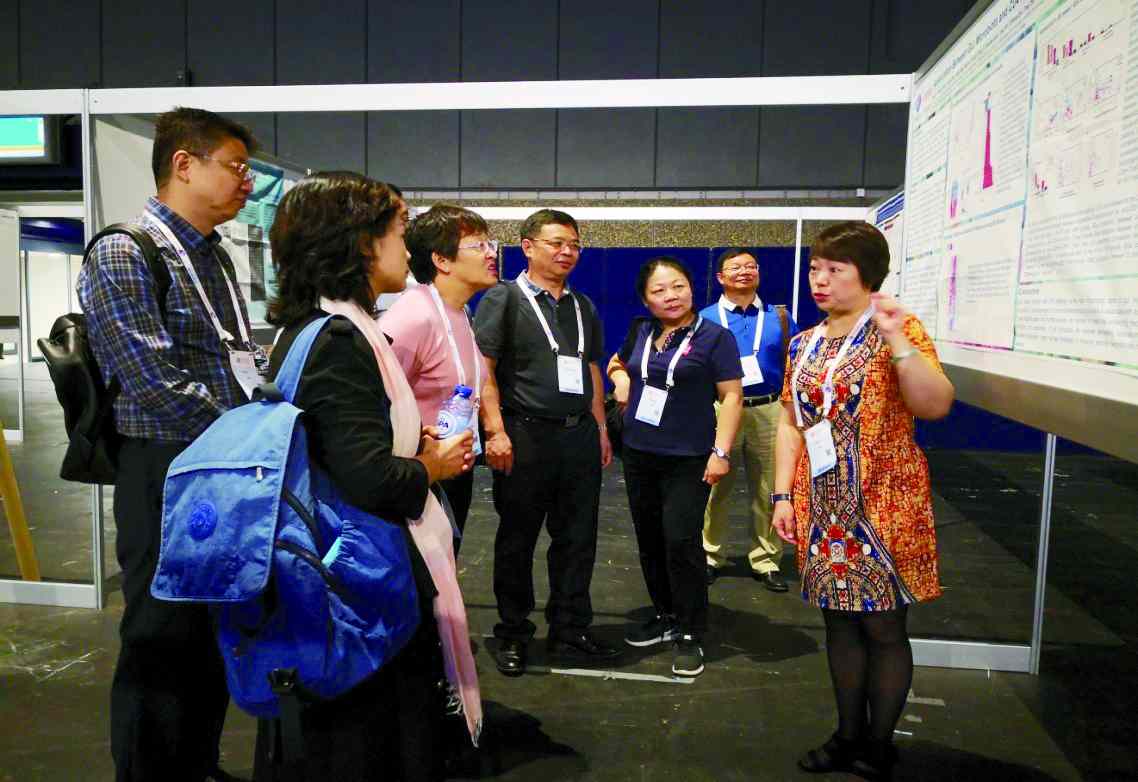The AIDS team of the Department of Infectious Diseases, PUMCH showed itself recently on the international academic stage, marking continuous progress of China’s research in this field.
PUMCH AIDS Team: voice on international stage
The Department of Infectious Diseases, PUMCH has been leading China in its AIDS fight. In 1985, Professor Wang Aixia discovered and reported the first AIDS case in the country. Led by Professor Li Taisheng, the clinical team went from stage to stage: from no medicine to optimized homemade generics, from treating toxic and side effects to blood concentration tests, from confirmatory tests to highly accurate virus checking, from treating opportunistic infection to a whole set of multi-disciplinary therapies. The Department led China in professional fields including antiviral therapy in adults, immune reconstitution and full-course management. It formulated three HIV guides which were promoted across the country and boosted the overall quality of the fight.
CROI and AIDS are internationally important meetings of academic exchange. Every year Professor Li brings back to his team latest news from the two meetings and also tries to put in our own findings. To have a voice on international stage requires not only world-class researches but more particularly, original, innovative projects.
PUMCH at CROI: innovative use of traditional Chinese medicine
Tripterygium wilfordii, one of traditional Chinese medicines, is widely applied to the treating of rheumatic and kidney diseases. Li’s team carried out six-year study on it. The team proved through in vitro study that Tripterygium wilfordii can inhibit HIV-caused cell inflammation and abnormal immune activation. Furthermore, through a combined antiviral therapy on 18 cases of immune reconstitution failure, it obtained the drug’s efficacy on boosting CD4 and reducing immune activation indicators. The findings were published on HIV Medicine in 2015.
Immune reconstitution failure refers to patients who, after more than two years of antiviral therapy, have virus under detection limit but, due to immune activation, inflammatory reaction, etc., with CD4+T unable to go above 350/mm3. Now internationally there is not much solution. Li sensed that Tripterygium wilfordii might fill in the blank for which clinical research is called.
Associate Senior Physician Lv Wei, one of the major researchers in Li’s team, has been in HIV treatment, follow-up and research for more than a decade. From 2013 to 2015 she was in charge of “immunosuppressive therapy for HIV/AIDS”, a sub-project under the National Science and Technology Major Project for the 12th Five-year Plan period (2011-2015). It was a randomized controlled trial (RCT) of Tripterygium Glycosides combined with antiviral therapy on 112 cases of immune reconstitution failure from four clinical centers (Beijing You’an Hospital, Beijing Ditan Hospital, Fourth Hospital of Harbin Medical University and Zhengzhou No. 6 People’s Hospital). Result showed that, compared with the control group, the Tripterygium Glycosides group showed risen CD4 and reduced immune activation indicators. The findings found its way into a poster at 2018 CROI, and Lv was also chosen as one of the world’s 32 conference-sponsored participants. It also marked international recognition of the unique role of Tripterygium wilfordii as an immune regulator.
PUMCH at AIDS: immune reconstitution and intestinal flora
On July 23-27, 2018, AIDS conference was held at Amsterdam, the Netherlands. Our research on HIV infected intestinal flora and immune reconstitution was shown in poster and speech. Through metagenomic tests, our team checked the intestinal flora of 61 HIV patients (26 treatment naive patients, 15 of immune reconstitution success and 20 of immune reconstitution failure) and normal people, and found that three bacteria producing butyric acid had high isotopic abundance ratio and were related with CD8+HLA-DR+ (an immune activation indicator) in those with immune reconstitution failure. Lv gave a report of the findings and many international colleagues showed great interest and expressed hope of cooperation.

Poster at AIDS 2018
